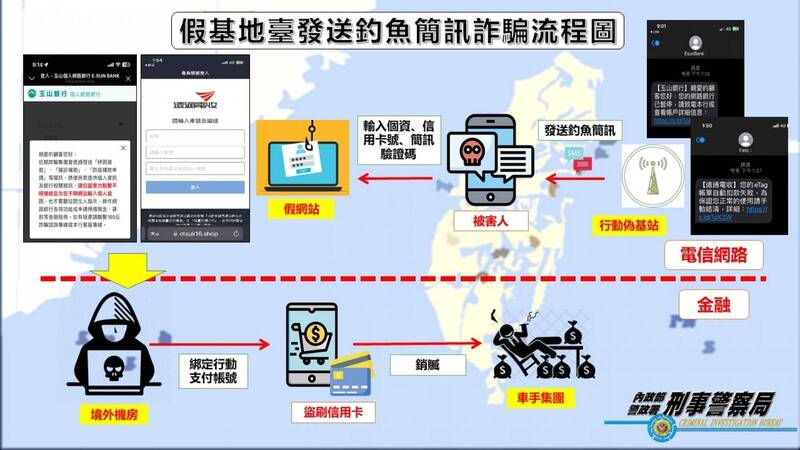The police announced that Guo suspected that he belonged to a fraud group and used fake base stations to commit crimes.
(Photographed by reporter Wang Guanren)
[Reporter Ding Yi/Taipei Report] The police have just uncovered the first fraud group in China that sent phishing text messages through fake base stations. "Quick recovery", "Signal type changed from 4G, 5G to GSM, 2G or no network type is displayed", you may be hijacked by a fake base station. At this time, you should avoid using your mobile phone to click any text messages and links to avoid defrauded.
Weng Baizong, deputy chairman of the NCC, said that the fake base station transmits high-power signals to overshadow the normal base station signal, and then sends fraudulent text messages. However, the NCC has cooperated with the industry to master the technology of detecting fake base stations and requires the industry Automatically detect the operating status of the base station through the program, and can distinguish fake base stations. Once a fake base station is found, the criminal bureau personnel of the 165 anti-fraud hotline will be notified immediately to collect evidence on the spot.
Please read on...
Weng Baizong pointed out that generally fake base stations are disguised as 2G GSM system, because the GSM base station will check the identity of the mobile phone before providing services to the mobile phone, but the mobile phone will not verify the authenticity of the base station. The base station has an opportunity to take advantage of it, and this loophole only exists in 2G. Taiwan's 2G base stations have already been shut down. Therefore, if the public finds that the signal is displayed as 2G, they can immediately conclude that it is a fake base station.
Weng Baizong pointed out that the three districts of the NCC will strengthen the ban on the import and sale of such illegal radio frequency control equipment.
NCC stated that currently common fraudulent methods include fake investment scams, fake online auction scams, and love and dating scams.
From 2019 to February this year, a total of 75.05 million text messages, 58.85 million overseas calls, 235 million anti-fraud text messages, and nearly 20,000 phone numbers were blocked.
NCC reminds that when people use mobile phones or computers, they should pay attention to the security of personal information, and avoid providing credit card numbers, bank account numbers or SMS verification codes to others for use. In case of suspicious websites, messages or links, immediately call 165 anti-fraud hotline. When cash is widely distributed among the people, it is even more important to recognize the correct website to avoid financial losses.
